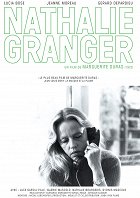Regie:
Marguerite DurasDrehbuch:
Marguerite DurasKamera:
Ghislain CloquetBesetzung:
Lucia Bosé, Jeanne Moreau, Gérard Depardieu, Luce Garcia-Ville, Valerie Mascolo, Nathalie Bourgeois, Dionys Mascolo, Jean Mascolo, Rémy DucheminInhalte(1)
Eine Frau lebt zusammen mit einer Freundin und ihren beiden Kindern in einem geräumigen Haus. Nathalie Granger, die Tochter einer der beiden Frauen, scheint in der Schule Probleme zu haben, denn die Lehrerin hat der Mutter mitgeteilt, dass die Kleine sich sehr gewalttätig gezeigt habe; zu Hause ist sie hingegen sehr brav und nicht auffällig. Die Mutter denkt daher darüber nach, ob sie Nathalie in eine moderne Schule schicken soll, ist dann aber ewntsetzt darüber, dass sie dort keine Klavierstunden haben wird, was ihrer Meinung nach das Leben der Kleinen ruinieren wird. Ansonsten geschieht an diesem Tag nichts weiter Erwähnenswertes, außer dass im Radio vor zwei jugendlichen Mördern gewarnt wird und ein Verkäufer den Frauen an der Haustüre eine Waschmaschine andrehen will. (Verleiher-Text)
(mehr)Kritiken (1)
The slow pace of minimal action is filled with apathetic characters constantly waiting for an unpleasant resolution in a house that should be a model of a warm family idyll were it not for the behavior of one of the children. At first glance, Nathalie’s angel, even without her physical presence in most of the film's plot, "floats" in it like a black moth coming from the future and paralyzing the present. The indifference of the characters is only broken by the arrival of a strange wanderer. The film may not want to convey any message, and perhaps we are just meant to immerse ourselves in the atmosphere of the house and its inhabitants. However, it is also possible to interpret a message about the growth of indifference and violence in an increasingly automated and alienated society (e.g., the washing machine, the educational system), as presented in the form of a radio broadcast of a pursuit of two teenage murderers, whose counterparts roam the screen in a slightly younger representation. It is thought-provoking in this regard that the male characters in the film are more emotional and action-oriented (Depardieu, the teenage murderers) than all the female characters, who, however, as mentioned above, will also "mature" to this stage. This is perhaps Duras' unintended contribution to the ongoing process of women's emancipation in society... The formal playfulness (repetition of the scene of the school interview, allusions to diegetic and non-diegetic music, and the camera and mirror games) is enjoyable, but after appearing sporadically, it is no longer further developed.
()
